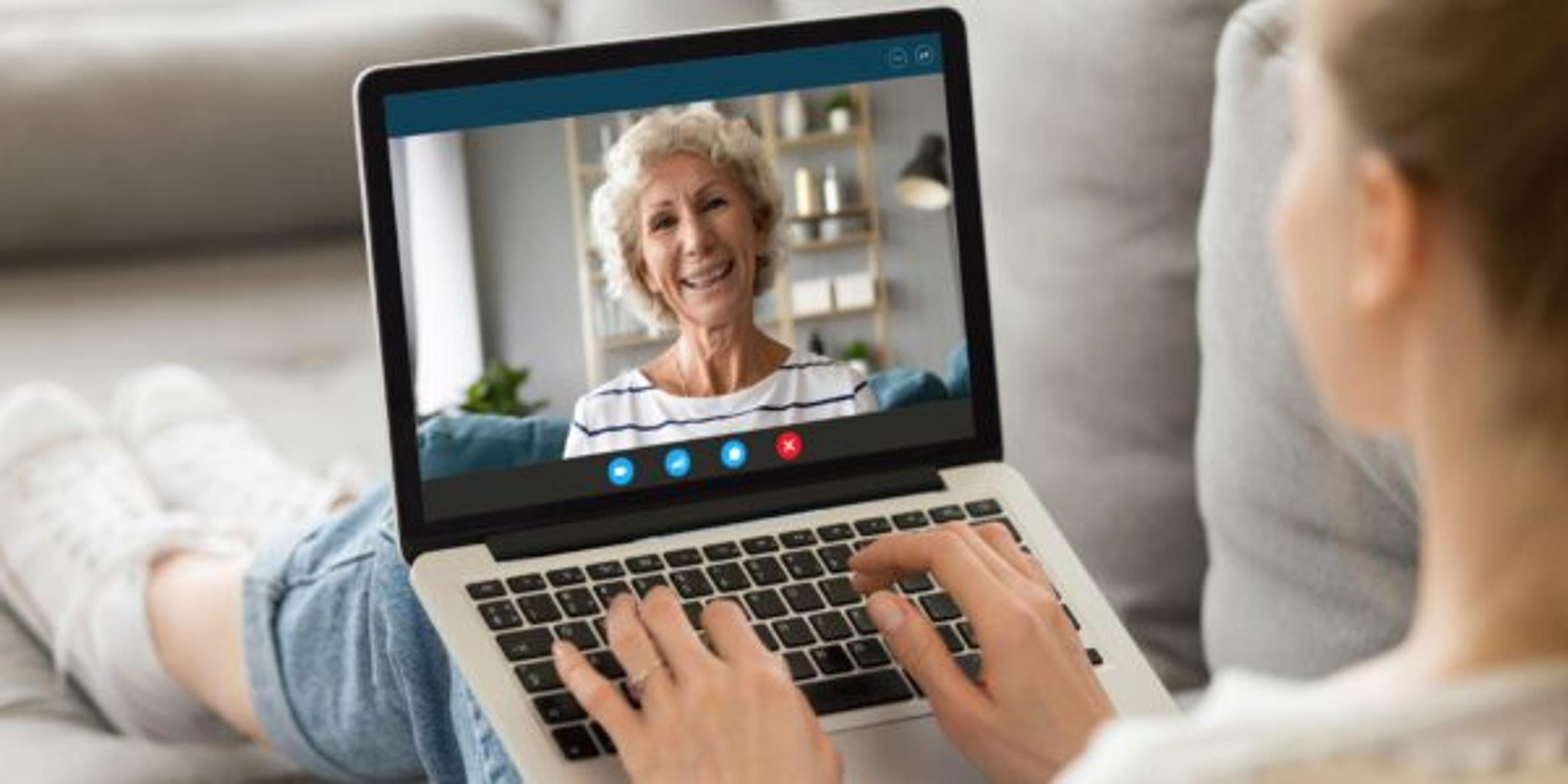Tips for Long-Distance Caregiving

Julie Edgar, AAA 1-B
| 4 min read

If you live away from your older loved one, you may be anxious about their wellbeing. That’s natural – even if they’ve been happily independent for a long time.
You’re also not alone: More than 15% of Americans are long-distance caregivers, according to the Family Caregiver Alliance. They spend more on caregiving expenses, they are mostly male, and they live an average of 450 miles from their loved one. They are likelier to feel more emotional distress than close-by caregivers.
If you live at a distance, here are tips for maximizing your caregiver effectiveness – and maintaining your peace of mind:
Do what you can
- If there is someone else who is the primary caregiver for your loved one, ask how you can be most helpful. An occasional day off will be welcome when you’re visiting. You can also offer to help with tasks you can do from a distance — like managing finances or making medical appointments.
- While you’re visiting, clear the living area of trip hazards like throw rugs and electrical cords lying on the floor, throw away old food and medicines, and get copies of any advance directive/living will that they may have. You can also order medical equipment like walkers and wheelchairs and install grab bars and handrails if needed.
Find ways to support them
- If your loved one’s clothes aren’t clean and the house is not as tidy as usual, ask if they’ll consider a housekeeper once or twice a week.
- Look at their medications to make sure your loved one is taking them in the right dosage. If not, buy a pill organizer. There are apps that will alert both your loved one and you when it’s time for a dose.
- If your loved one is having a difficult time getting out to get groceries and does not want to rely on neighbors, consider Meals on Wheels. A hot meal will be delivered daily to their door if they qualify.
- Consider a smart speaker like Alexa, Echo or Google Home that can alert your loved one to when it’s time to take their medication.
Get familiar with their lives
- Before you visit, ask your loved one to make an appointment with their primary care doctor that you can attend. You can also ask to be included as someone whom the doctor can speak to about your loved one’s health.
- If your loved one doesn’t have a primary caregiver nearby, help with finances by taking over bill paying and consolidating accounts. You can set up autopay through their bank, too. You may want to clarify their insurance benefits.
Create a network of help
- If you feel your loved one needs more help in the home, arrange for in-home care. You could hire a geriatric care manager in their area who can help evaluate your loved one’s needs and make recommendations. They can also help settle disputes between family members about caregiving.
- Ask your loved one about trusted neighbors whom you can call in case you can’t reach him or you want another set of eyes on him.
- If your loved one lives in a nursing home or an assisted living community, schedule a call with the staff of the facility and other family members to get an update on your loved one’s wellbeing.
- If your loved one can navigate a smartphone, give her one that has contact information of family members, friends and doctors.
Learn about resources available for your older or disabled loved one by calling the AAA 1B at 800-852-7795 or going to aaa1b.org. You may also visit the statewide Area Agencies on Aging.
This content is provided by the Area Agency on Aging 1-B, a nonprofit that serves older adults and family caregivers in Livingston, Macomb, Monroe, Oakland, St. Clair and Washtenaw counties.
Opinions expressed in this blog belong solely to the author and do not necessarily reflect the opinions or beliefs of Blue Cross Blue Shield of Michigan or its subsidiaries and affiliates.





